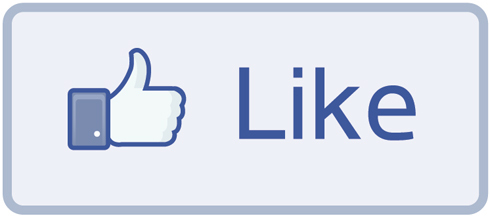Purposely Not Liking My Pictures

After a recent conversation with a friend, I began to wonder if the power of the Facebook like is a figment of my imagination. Can your so-called Facebook friends send you subliminal messages by liking or not liking your status and photos?
The conversation went something like this:
My friend: "I know she's mad at me. Probably because the kids are not as friendly this year."
Me: "Did she say something?"
My friend: "No. She just stopped liking my Facebook updates and photos cold turkey, so it's obvious. Plus I stalked her and see she's still liking other friends' stuff."
This got me thinking about the implications of the tiny act of clicking "like." Are we subconsciously or overtly manipulating the little like button, and giving it far reaching powers? Whether purposely or unintentionally, here are five ways that we absurdly manipulate the like button:
1. Displaying good Facebook manners. Back when I was a rookie Facebook participant, my friend explained that it's polite to like my friends' posts. "You don't even have to read their status updates. Just give them a like," she schooled me. This seemed not only phony but dangerous. What if I inadvertently liked something that went against my grain or beliefs? "So just be nice and like all their photos," she compromised.
Many Facebook years later I'm wondering if she was right. I have noticed that people I hardly know who consistently give me likes somehow seem friendlier and closer in real life. This is of course absurd, but I have yet to figure out what it's all about. So as not to risk being impolite, I like. And like. And like.
2. Reciprocating likes. Do you have any "friends" from way back who consistently like every photo you post? And if we're being honest, weren't even your real friends back then? They somehow showed up in your circles and friend suggestions and are now your biggest fans. C'mon, we all have at least one. Conventional Facebook protocol suggests that you take notice and reciprocate. Make sure you hit like on photos of their spouses, kids and pets -- it's just a tiny reciprocal click. So what if you don't remember ever having a real conversation in real life? You're reciprocating. Seems like a normal give-and-take response in the strange world of social media friendships.
3. The "dislike" like. I've seen countless status updates begging Mark Zuckerberg to release a "dislike" button and I've read reports that this tool is on its way into our cyberworlds any day now. That sure would come in handy for those dismal death and illness announcements that invariably make their way into the newsfeed. I understand that social media is a quick and dirty way to share bad news, but I can hardly like hearing that someone's parent died, and when I don't know them well enough to have heard the news in person, or even make a comment, I question the scope of my friends list. When bad news comes trickling in, how can we hit like? But we do, in order to acknowledge that we duly noted and send our cyber-sympathy. For the record, I don't like this one bit.
4. Purposely liking instead of commenting. Admit it. Oftentimes you click like instead of commenting even when you're dying to comment because you dread the stream of notices you'll get every time someone else comments on the same status (I'm sure there's some way to turn this off, but then I'd miss a million other things, God forbid). What a clever way to stay as disconnected as possible while using a social media tool that allows you to connect with everyone under the sun! Liking in this case amounts to discharging a perceived obligation without having to deal with others' comments. All this under the guise of staying linked with your peeps. I think I lack the bandwidth to deal with this mind game.
5. Deliberately withholding likes. Not liking is an excellent passive-aggressive way to send someone a message. The colleague, friend or boss who has consistently liked your stuff and has now gone cold but is still active on Facebook, is sending you a message. No, you're not being paranoid -- you're being ignored. The real question is, WHY do you care?!
Many things I learned in college entered one ear and exited the other by the time finals rolled around, but one little fact from my social psychology class has stayed with me throughout the years: People want to be liked. Isn't this the whole premise of Facebook in the first place? And everyone must know that on some level, if the Facebook like phenomenon and all its corrupt, subliminal and absurd uses are any indication...
MORE IN Wellness
MORE IN LIFE
Purposely Not Liking My Pictures
Source: https://www.huffpost.com/entry/5-ways-we-absurdly-manipu_b_8350466
Posted by: williamssignitere.blogspot.com

0 Response to "Purposely Not Liking My Pictures"
Post a Comment